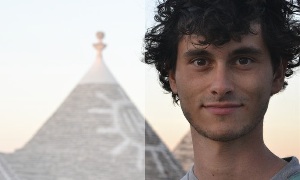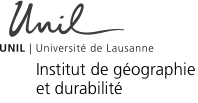
Education and background
After earning a bachelor's degree in geology at the University of Namur (Belgium), I moved to France to attend a master in Water, Climate and Environment at the University of Grenoble, which allowed me to gain knowledge and quantitative methods related to natural sciences.
Then I took a second year of master 'HydroHazards', dedicated to hydro-meteorological risks, in exchange between the University of Grenoble and the University of Volos (Greece). During my master's dissertation, I could expand my knowledge on the analysis of human impacts related to torrential floods, in collaboration between the Hydrology Laboratory of Grenoble and the National Severe Storms Laboratory in Norman (Oklahoma).
This training has sensitized me to the integration of natural sciences (hydrology) and human sciences (geography, risks, impacts) and it is by this logic continuity, albeit eclectic, that I began in September 2013 my PhD thesis on Alpine water uses at the institute of geography and sustainability. This research project addressed the issues of quantification and monitoring of water uses in mountain territories, linked to the activity of alpine resorts. For this, the resorts of Megève (Haute-Savoie) and Crans-Montana (Valais) were chosen as study sites.
The thesis addresses the lack of data on the use of water in mountain tourist areas by implementing a field strategy combining a collection of quantitative data (water meters and flow meters), qualitative information (observation and interviews with users) and the development of tools for the spatial and temporal evaluation of water uses: the water use basin, the water use density, the water use regime and the water use cycle. This research, at the interface between hydrology and human geography, evaluates in a more integrated way the uses of water (here, drinking water and irrigation) and confronts the methods estimating uses with actual values and actual practices observed in the field.
